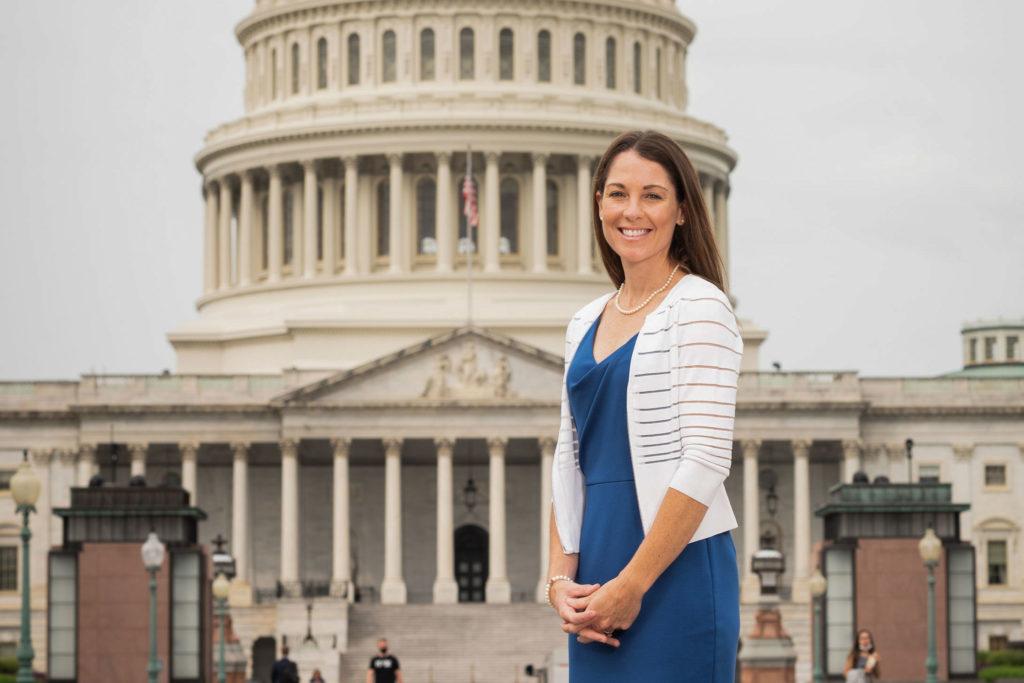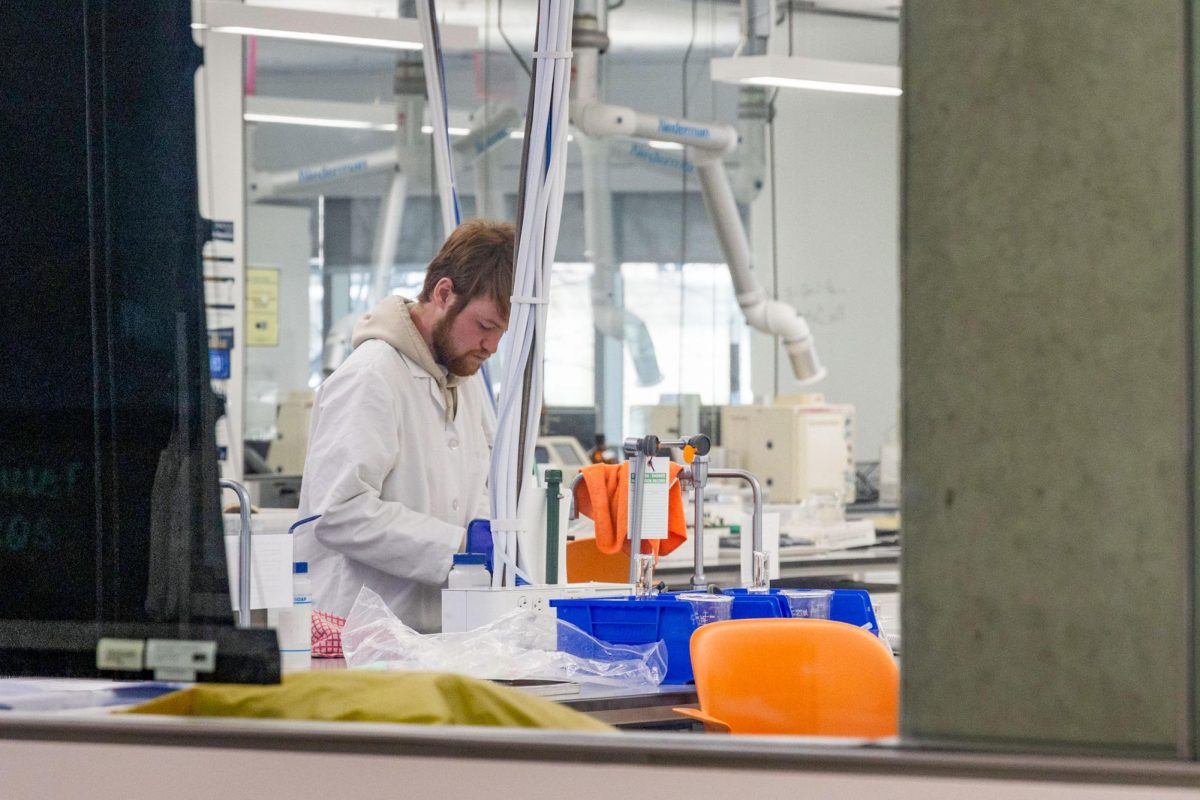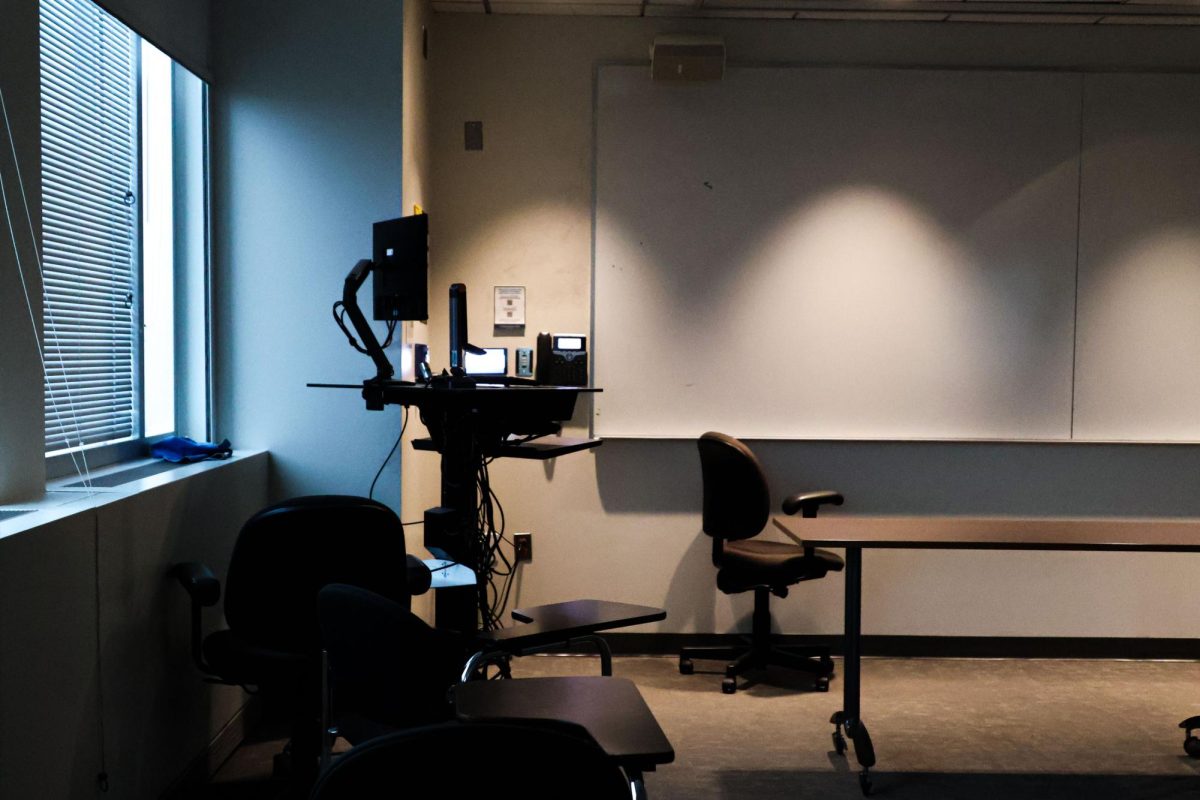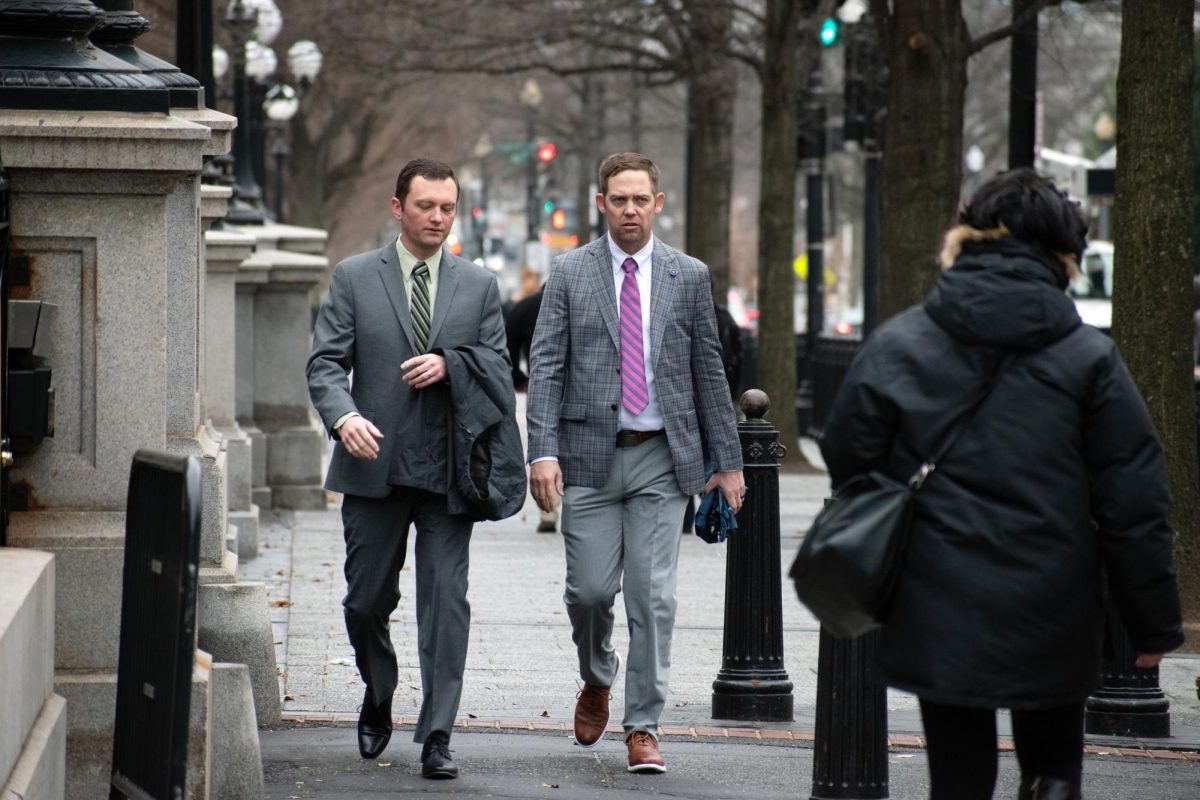Updated: Sept. 9, 2021 at 1:32 a.m.
A nursing professor helped launch a podcast about health disparities and burnout within the nursing profession in collaboration with the National Academy of Medicine last Tuesday.
Ashley Darcy-Mahoney, an associate professor of nursing who worked with the NAM to staff and produce the podcast titled “The Future of Nursing,” said the new show will contain eight 30-minute episodes featuring frontline nurses and experts in health equity from across the country. She said nurses will share stories about their experiences during the COVID-19 pandemic, their careers and the role they play in addressing inequities like the lack of access to health care that marginalized communities face.
“What we hope this podcast will help is that the achievement of health equity in the United States can and should be built on strengthening nursing capacity and expertise, including removing permanent barriers,” Darcy-Mahoney said.
Darcy-Mahoney said health disparities in the United States are “stark,” and uninsured people are less likely to receive preventative care. She said nurses face many barriers like the scope of practice required to become a registered nurse and preventative licensure laws, like requirements for health practice to be supervised by another health provider or doctor.
Darcy-Mahoney said the episodes will release weekly on Spotify, Google Podcasts and Apple Podcasts.
She said the podcast is based on a report published by the National Academy of Medicine called the “The Future of Nursing 2022-2030,” which addresses the role nurses play in increasing access to health care and diversifying the health workforce. Darcy-Mahoney said she spent the past year as the NAM’s nurse scholar in residence, editing, writing and helping produce the report.
The American Nurses Association, the American Academy of Nursing and the American Nurses Foundation, all support the NAM’s nurse scholar-in-residence program.
Darcy-Mahoney said Charmaine Lawson, a nationally recognized and award winning nurse practitioner, will co-host the podcast with funding from the Robert Wood Johnson Foundation, a philanthropic organization committed to improving health care in the United States.
She said she hopes the podcast will “bring the Future of Nursing report to life” and reach patients, community members, physicians and nurses.
Darcy-Mahoney said the first episode, which came out last week, features Felicia Bowen – the assistant dean of undergraduate programs at the Medical University of South Carolina and a retired army nurse – who discussed her experiences working with veterans. She said the upcoming episodes discuss removing barriers to health care, like high copayments, diversifying the nursing education workforce and recruiting students from different backgrounds.
“Nursing schools need to intentionally recruit, support and mentor faculty and students from diverse backgrounds to ensure that the next generation of nurses reflect the community that it serves,” Darcy-Mahoney said.
Experts in nursing said the podcast will shed light on the nursing profession for people who don’t follow statistical reports about nursing inequities.
Dalmacio Flores, an assistant professor of nursing at the University of Pennsylvania and an HIV and AIDS certified registered nurse, said nurses are vocal in their advocacy about their patients and themselves, and he doubts the podcast will shy away from any controversial topics.
“I think it will do justice by covering what needs to be covered and hopefully being honest and calling out the systems that need to do better so that our profession thrives and is able to allow nurses to do what it is that we’re good at,” Flores said.
Flores said it’s “beautiful” that the podcast features personal anecdotes, including one from a nurse practitioner’s experiences working in Macon County Alabama, one of the poorest counties in the state.
The podcast will also feature health care professionals like Susan Hasmiller, the senior adviser for nursing at the Robert Wood Johnson Foundation, and Michael McGinnis, a senior scholar at the NAM.
Sue Anne Bell, an assistant professor of nursing at the University of Michigan School of Nursing, said the lack of diversity in the nursing field served as another major issue that the podcast discussed in the first episode. She said diversifying the workforce beyond its current base of white women will help build a system in which nurses come from the communities they serve.
Hispanic and Black nurses made up just 10.2 and 7.8 percent of registered nurses this year, respectively, according to data compiled by Carson-Newman University.
Bell said nurses are also facing burnout after being overworked in unsafe hospital situations during the pandemic. She said she spent several months last year working in hospitals with coronavirus patients, which she recalls as a “scary time” to be a nurse.
Bell said Darcy-Mahoney is regarded as a “nurse leader” in the nursing community after serving as the NAM’s distinguished nurse of residence over the past year. She said she couldn’t imagine a “better time” for this podcast considering all the critical work that nurses have done in the pandemic.
“The COVID-19 pandemic has highlighted some of the huge challenges that nurses face every day,” Bell said. “I look forward to the podcast kind of weaving what the future of nursing might look like with what nurses are experiencing today, and I’m very excited about it.”
This post was updated to correct the following:
The Hatchet incorrectly reported that Susan Hasmiller is a doctor. She is a nurse. We regret this error. This post was also updated to clarify that Darcy-Mahoney assisted the NAM in the podcast’s launch.








